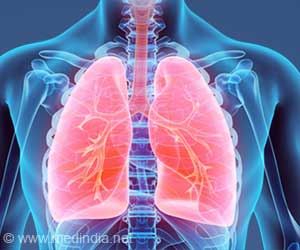Eliminating an enzyme which produces fat in the body results in cancerous cells due to accumulation of phosphatidic acid.
Highlights
- The enzyme Phosphatidic acid phosphatase (PAP) regulates the amount of fat in the human body.
- Controlling the levels of the enzyme is therefore of interest in the fight against obesity.
- But getting rid of the enzyme entirely can increase the risk of cancer, inflammation and other ills.
"For years, we have been trying to find out how to fine-tune the enzyme's activity so it's not too active, and creating too much fat, but it's active enough to keep the body healthy."
Gil-Soo Han, research assistant professor in the Rutgers Center for Lipid Research, discovered the gene encoding the enzyme in 2006 though the enzyme was discovered in 1957. The enzyme determines whether the body's phosphatidic acid will be used to create fat, or create the lipids in cell membranes.
Baker's yeast was used as a model organism as it also contains the key enzyme. Han, study lead author, deleted a gene in yeast to eliminate the enzyme. Phosphatidic acid accumulated and the cells started to produce far more membrane lipids than necessary.
"We have found that maybe a more critical role for the enzyme is to make sure that cells are not making too much membrane lipid," Carman said. "If you make too much membrane lipid, you make too much membrane and the cells are permitted to grow uncontrollably, a condition characteristic of cancer."
Lately, the Rutgers scientists have been trying to understand the enzyme's structure and function. The next step is to figure out how to control it, Carman said.
Fat and Cancer - What’s The Link?
Scientists from Harvard Medical School identify certain cancers that feed on fat for energy. In a normal human, carbohydrates and sugars are first broken down into smaller units and utilized for energy, storing fats for use when sugars are not available.
Another study finds that due to excess fat in the body, fat cells produce hormones and proteins that regulate the growth of cancer cells in the human body.
According to the World Health Organisation (WHO), around 1.9 billion adults worldwide are overweight or obese, and with obesity linked to some 13 types of cancer, the problem of extra weight poses a serious threat to their lives.
Reference
- Gil-Soo Han and George M. Carman., Yeast PAH1-encoded phosphatidate phosphatase controls the expression of CHO1-encoded phosphatidylserine synthase for membrane phospholipid synthesis, Journal of Biological Chemistry (2017) http://dx.doi.org/10.1074/jbc.M117.801720.
Source-Medindia
















